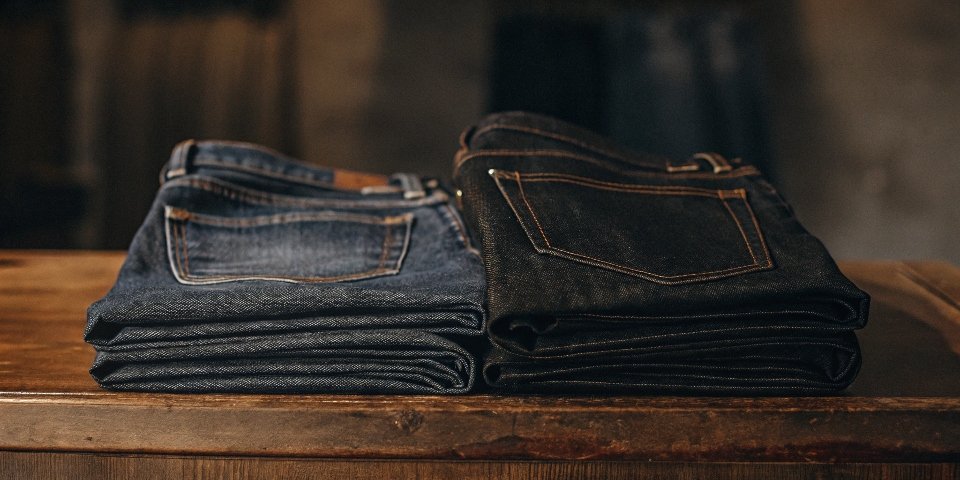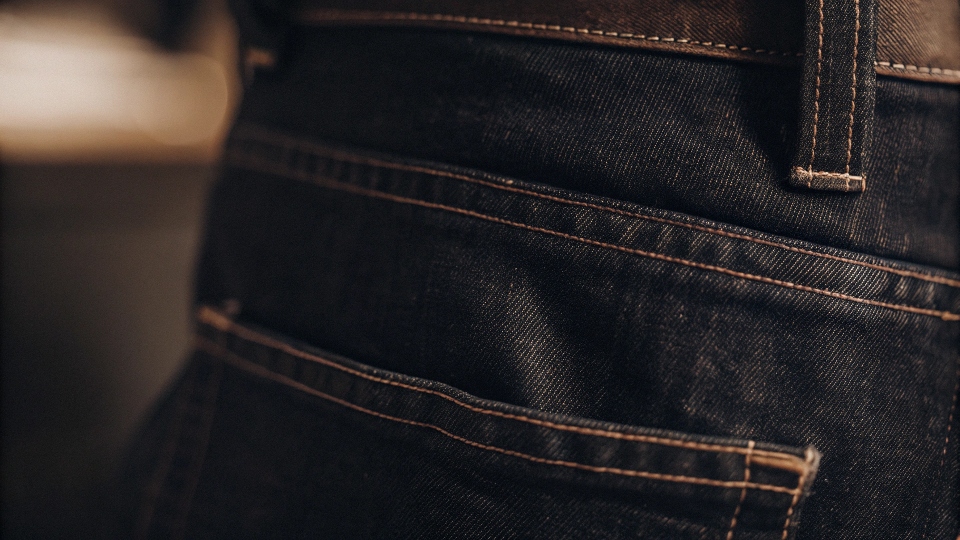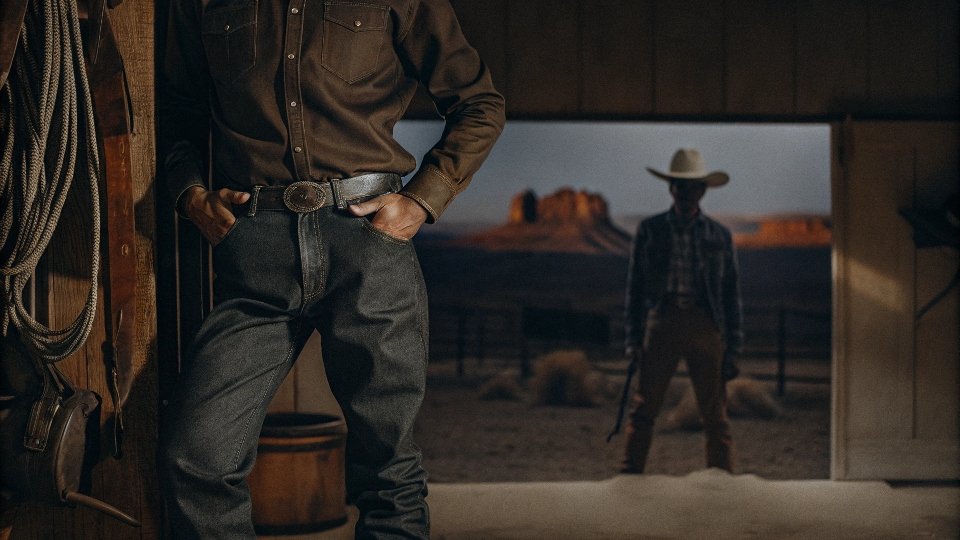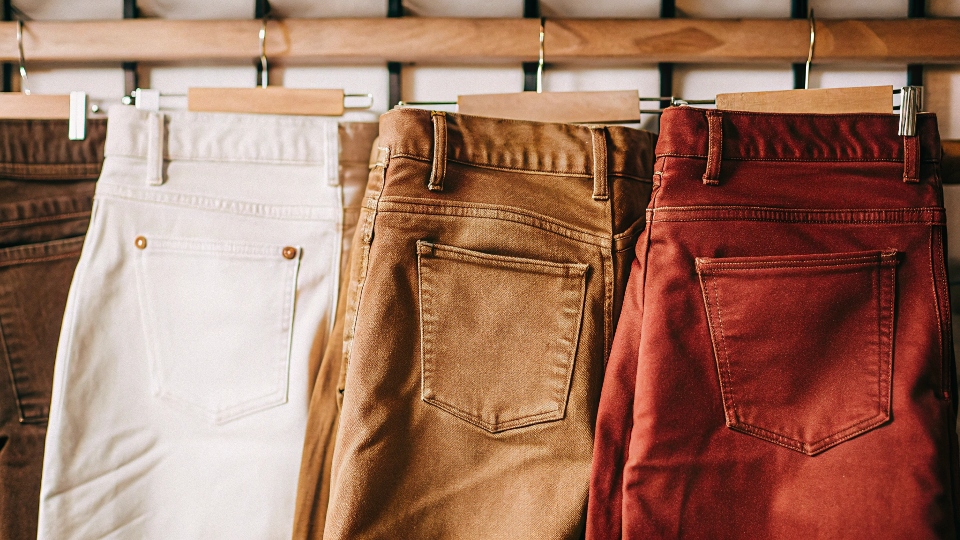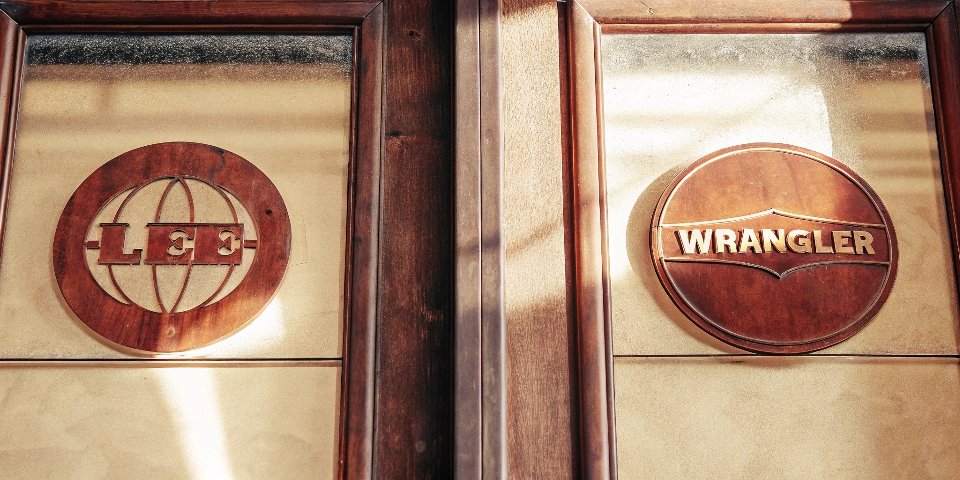You see Lee jeans on the shelves next to Levi's, often at a great price. But you wonder if they are a real heritage brand or just trading on an old name. The doubt makes you hesitate.
Yes, Lee jeans are a good quality brand with a rich history in American workwear. They are known for their durable construction, classic fits, and provide excellent value. For those who appreciate sturdy, no-nonsense denim, Lee is a solid and reliable choice.
In my two decades of making jeans, I have handled denim from almost every major name. I have seen what makes a pair of jeans truly good, and it is not always about the price tag.
Lee has always held a special place in the world of denim. They were born from the same tough, hardworking spirit as their famous rivals. They have a history of innovation and a commitment to making a product that lasts.
While they may not always have the same fashion spotlight as other brands, their quality is undeniable. Let's break down what makes Lee a brand worth your attention.
Does Lee make good quality jeans?
You can feel the fabric in the store, but you cannot see the details that make a jean last. You worry about buying a pair that will fall apart at the seams after a few months of wear.
Absolutely. Lee makes good quality jeans by focusing on workwear fundamentals: strong fabric, robust stitching, and practical design. Their history is built on making garments for people who needed them to survive a day's work, and that DNA is still present in their products today.
When a client like Dean brings me a design, we talk about the little things, because that is where quality lives. Lee has always understood this. I remember getting my hands on a pair of vintage Lee jeans1 from the 90s.
The first thing I noticed was the fabric. It was a thick, substantial denim, maybe 13 or 14oz, with a stiff feel that I knew would wear in beautifully over time. This is the kind of material that denim lovers seek out to get those perfect, personal fades.
The stitching was incredibly neat and dense. On the back pockets, they have their signature "Lazy S" stitch. It is not just for looks; that double-arc stitch adds a layer of reinforcement to a high-stress area. They are built with a purpose.
It's this focus on creating a tough, reliable garment that makes them good. They are not trying to be high fashion; they are trying to be great jeans.
| Feature | Lee Jeans (Typical) | Generic Fashion Jean |
|---|---|---|
| Fabric | 12oz+ denim, often 100% cotton | Lightweight denim with high stretch |
| Pocket Stitching | "Lazy S" decorative reinforcement | Basic, single line stitching |
| Key Seams | Felled inseams for durability | Simple overlocked seams |
| Brand Identity | Rooted in workwear and durability | Follows fast-changing trends |
| Intended Lifespan | Built to last for years | Built to last a season |
Is Lee owned by Levi's?
You see two heritage American denim brands, both born in the late 1800s. It is easy to think they might be part of the same company, like two sides of the same coin.
No, Lee is not and has never been owned by Levi's. They are, and always have been, two separate companies and historically have been each other's biggest competitors in the American denim market. Their similar histories created a rivalry, not a partnership.
Understanding the history of these brands is fascinating. It tells you so much about their identity. Levi Strauss & Co.2 started things off, finding huge success with their riveted work pants for miners in the California Gold Rush. A few decades later, in 1889, Henry David Lee started the H.D. Lee Mercantile Company3 in Kansas. He saw that workers like farmers, railroad men, and cowboys also needed tough clothing. This is where their great rivalry began.
Levi's owned the riveted pocket. But Lee innovated in other ways. They created the "Union-All" coverall, a single garment that protected workers from head to toe. Later, in the 1920s, they introduced the zipper fly to jeans, which was a huge deal at the time.
I love this history because it shows two great companies pushing each other to be better. They were both responding to the needs of the American worker, but they did it in their own unique ways. This competition is why both brands became so iconic. They are not related; they are rivals who shaped an entire industry together.
Which brand of jeans is best?
You want to spend your money wisely and buy the "best" jeans. But with hundreds of brands all claiming to be number one, the question feels impossible to answer. It's a source of constant confusion.
There is no single "best" brand of jeans. The best brand is the one that best meets your specific needs. Lee is often the "best" choice for someone who values classic American style, durability, and excellent value for money.
In my factory, we make jeans for brands that sell for $30 and for brands that sell for $300. The "best" one depends entirely on the customer's goal. I encourage designers like Dean to think in categories.
Levi's and Lee are both champions in the "Classic American Workwear" category. They offer authentic styles rooted in history at a price that most people can afford. Within this space, they are both fantastic choices. But if your definition of "best" is the most luxurious and artisanal fabric4 possible, then a Japanese brand like Momotaro, which weaves its own denim on old shuttle looms, would be your "best."
If "best" means the most cutting-edge fashion silhouette, a brand like A.P.C. or Acne Studios might be your answer. The key is to stop looking for a single winner and start matching your personal needs to a brand's specific strengths. Lee's strength is its honest, unpretentious quality. It does its job exceptionally well without costing a fortune.
| Brand Category | Brand Examples | What Makes Them "Best" in Their Category |
|---|---|---|
| Classic Workwear Value | Lee, Levi's, Wrangler | Durability, authentic heritage, and accessible pricing. |
| Sustainable & Ethical | Nudie Jeans, Patagonia | Organic materials, transparent production, repair programs. |
| Premium Raw Denim | Momotaro, Iron Heart | Unmatched Japanese selvedge fabrics and craftsmanship. |
| Modern Fashion Fit | A.P.C., Acne Studios | Trend-setting silhouettes and a minimalist aesthetic. |
Is Lee Jeans owned by Wrangler?
You often find Lee and Wrangler sharing the same section in department stores. Their similar workwear vibe makes you wonder if they are secretly connected. This confusion is quite common.
Yes, Lee and Wrangler are sister brands owned by the same parent company. That company is Kontoor Brands, which focuses specifically on the denim market. Although they are run as separate brands, they share a common corporate ownership.
This is a really interesting lesson in modern brand management. For many years, both Lee and Wrangler were part of a much larger company called VF Corporation, which also owns brands like The North Face and Vans.
In 2019, VF Corporation decided to spin off its jeans businesses into a new, separate, publicly traded company. That company is Kontoor Brands5. From a business and manufacturing perspective, this makes a lot of sense. Kontoor can create efficiencies behind the scenes.
They can share resources for things like sourcing raw denim or managing supply chains. However, to the public, they work hard to keep the brands distinct. They have different design teams, different marketing campaigns, and different target customers.
Wrangler has a strong identity rooted in rodeo and Western culture. Lee has a broader appeal as classic, everyday American workwear. It is a smart strategy: they maintain the unique heritage and identity of two iconic brands while benefiting from the scale of a single, large parent company.
Conclusion
Lee jeans are a very good choice for their quality, durability, and classic style. They are not owned by Levi's, but are sister brands to Wrangler under Kontoor Brands, offering incredible value.
-
Explore the unique features of vintage Lee jeans, including their quality fabric and craftsmanship that denim enthusiasts cherish. ↩
-
Explore the rich history of Levi Strauss & Co. to understand its influence on modern fashion and workwear. ↩
-
Discover how H.D. Lee Mercantile Company revolutionized workwear, shaping the clothing industry with their innovative designs. ↩
-
Discover the unique qualities of luxurious and artisanal fabrics, especially in brands like Momotaro, to elevate your denim knowledge. ↩
-
Explore this link to understand how Kontoor Brands is reshaping the denim market and its impact on brand management. ↩

